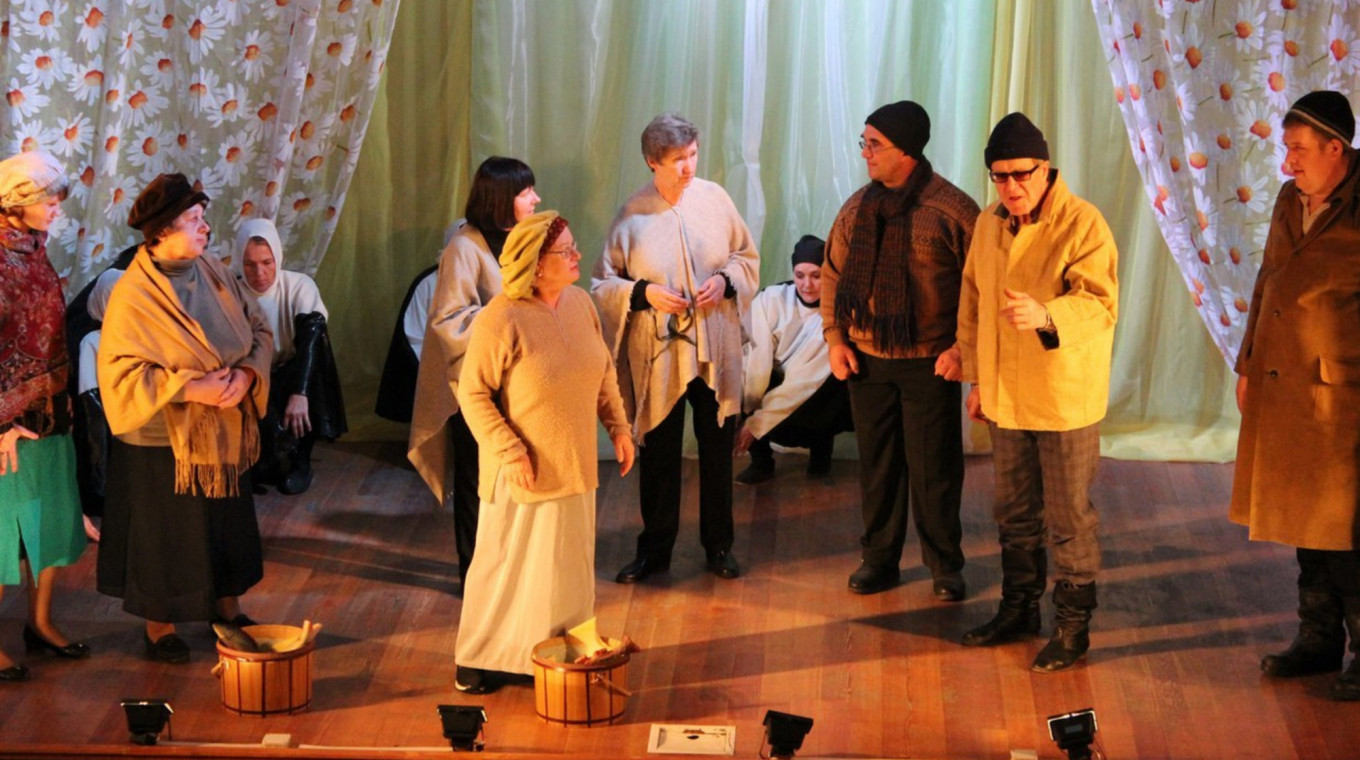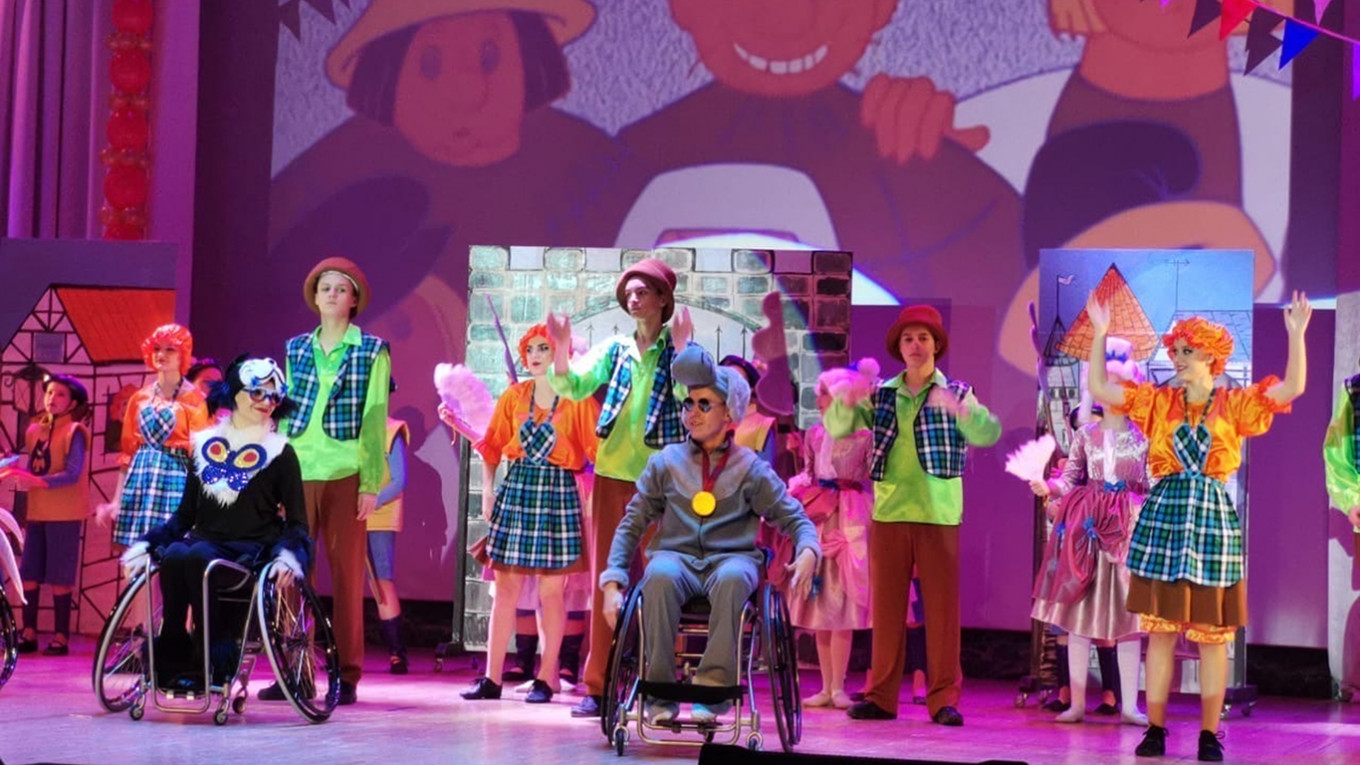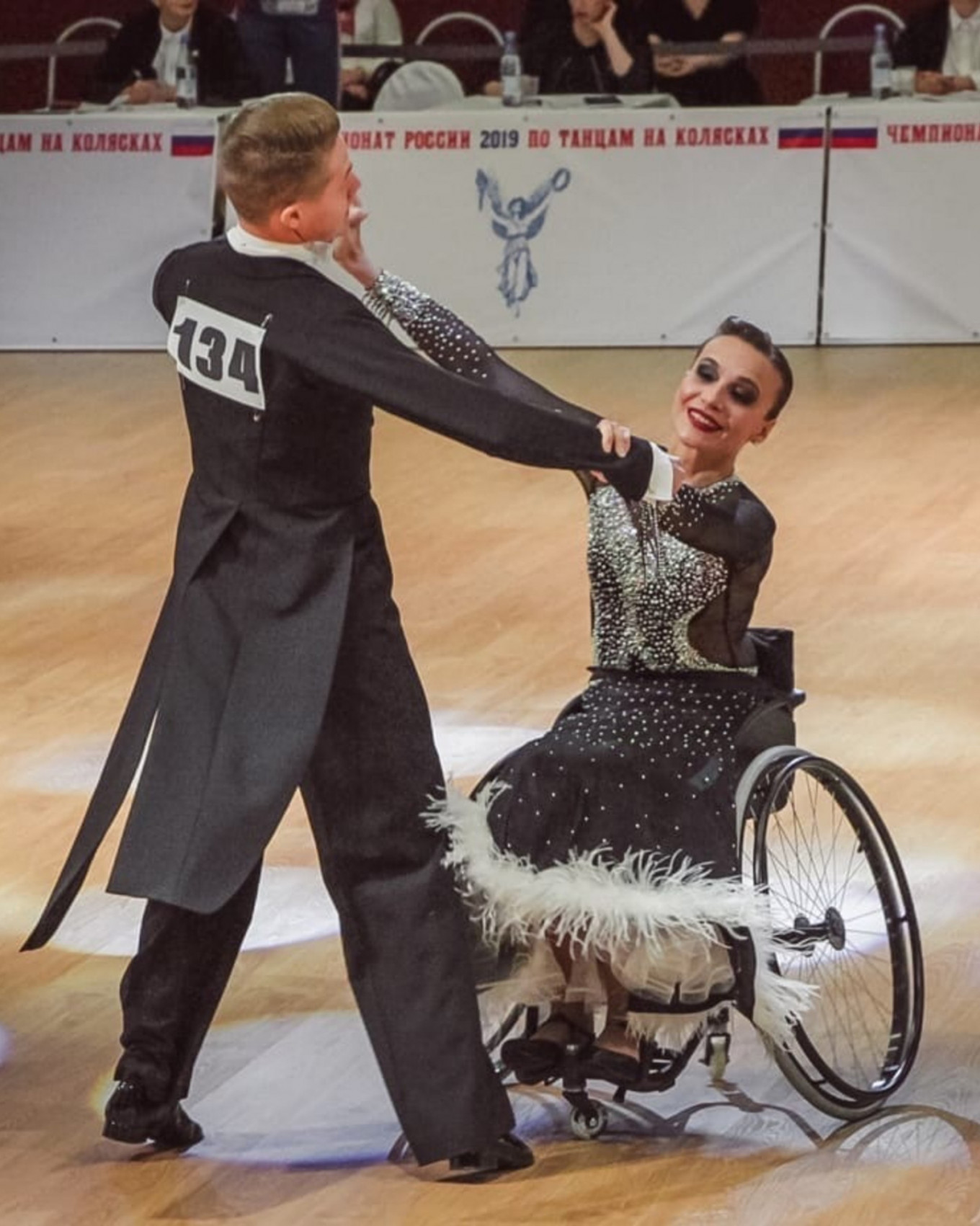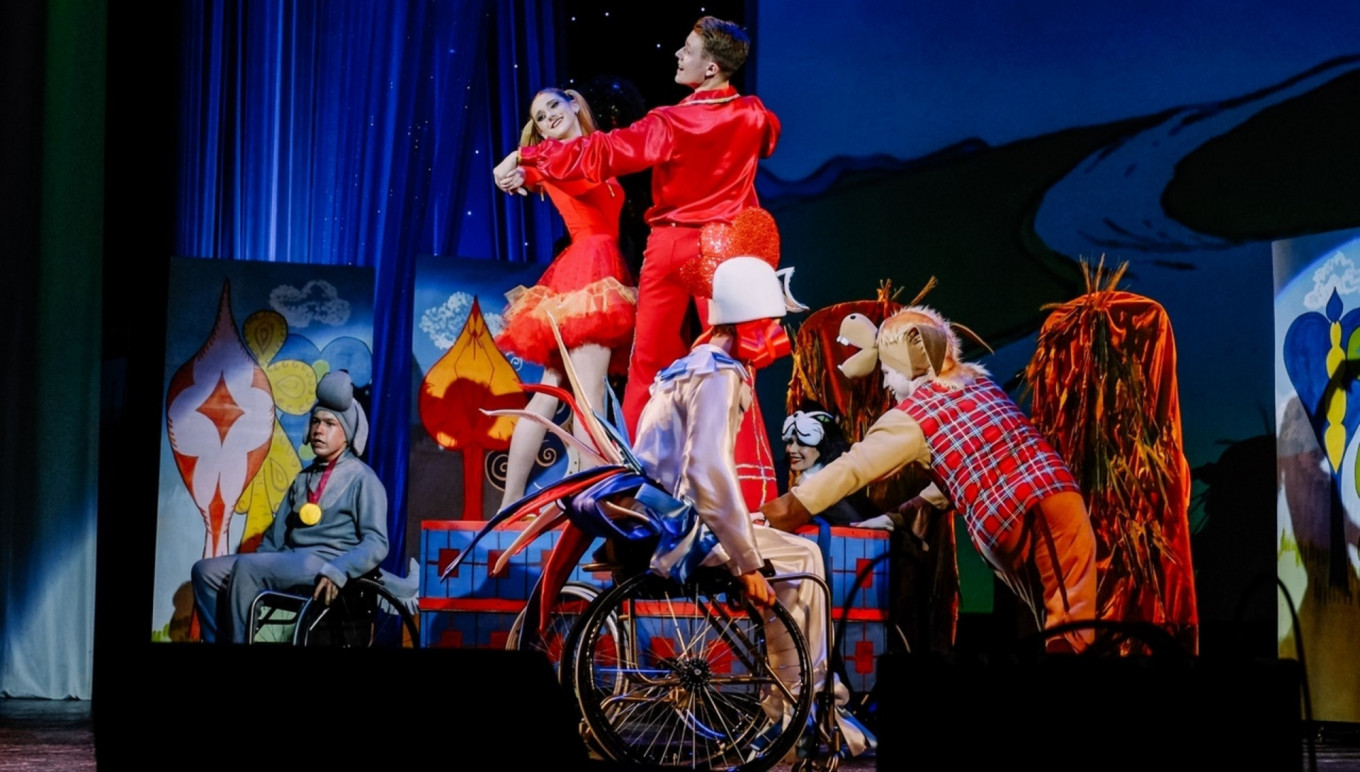With the baby carriage I can go to the store but not to the pharmacy, because there is no ramp.
That was part of my daily planning when I became a mother. Life with a baby carriage was sometimes complicated, but the lives of many disabled people, especially in smaller Russian cities and towns, often shrinks to four walls of the apartment.
According to the Federal Register of Disabled Persons, as of October 1, 2019, there were almost 12 million disabled people in Russia. The “Accessible Environment” state program looks good on paper, but it doesn’t work everywhere, especially in small Russian cities, including Lipetsk. But even where it does function well, there are problems that ramps and audible pedestrian crossing signals can’t solve.

A new perspective for people with disabilities
Denise Roza is the head of Perspektiva, a Russian disability non-governmental organization. In the 1990s at the start of Roza’s work in Russia, when a group of young people with disabilities marched in Novgorod in 1999, people thought they were crazy. And when a Perspektiva employee who used a wheelchair tried to go on a business trip, airport officials wouldn’t let her on the plane.
Now with a staff of about 80 employees, half with disabilities, some of the basic issues have been solved, but there is still much to be done.
“If a person good at his or her job, there is no problem,” Denis Roza told The Moscow Times. “However, disabled people often lack skills and don’t have work experience, so employers are afraid to hire them.”
Perspektiva conducts a variety of programs to facilitate greater inclusion: job training and placement assistance, inclusive education and sports, development of leadership qualities, and several creative projects, such as Theater Perspektiva where young people write plays with the help of professional playwrights and then see them staged by famous directors and actors. Another program, supports “universal design” that is suitable for everyone: people with various forms of disability, senior citizens, parents with baby carriages. For this project, the team conducts seminars, audits of existing facilities, festivals, and competitions among designers and architects.
“In 1997, we began to conduct “kindness lessons” where people with disabilities went to schools and tried to break down physical and psychological barriers. Since we began our work, the situation has changed for the better,” Roza said.

Living independent lives
Perspektiva has partner organizations in approximately 30 regions, and although things are changing, the pace is slow.
In Lipetsk, Solnechny Mir (Sunny World) joins together about 150 families with children who have Down syndrome or autism.
“As a mother of a ten-year-old son with Down syndrome, I understand what it feels like when the doctor says that your child will not live a productive life,” Lilia Pedan, a leader of the organization, told The Moscow Times.
The goal of her work is to teach children to become independent. With funding from two state grants, the group has provided training for parents and allowed them to hire specialists: a psychologist, a specialist in developmental and physical disabilities, and a speech-language therapist. Children play sports, dance, and develop different kinds of crafts that expand their capabilities. To move toward Pedan’s goal of helping people with Down syndrome live on their own, students are getting an education through the Lipetsk Center for Education, Rehabilitation and Wellness.
Another group, the “Lestnitsa” (Staircase) Special Folk Theater, welcomes adults with any kind of disability. “Our life is a staircase, but some people decide to rise, and someone decide to descend. Our artists try to rise,” director Marina Ralina said.
With a grant from the city, the theater started its work, giving roles to match abilities, so if someone can’t remember many lines, he’s given a cameo role, and someone who can’t stand has a role that allows her to sit. Progress may be slow, but it’s very gratifying. When Victor Rodionov came to the theater, he could barely say simple phrases. Now he plays the leading roles.
Although Ralina would like more teachers, the real problem is that they are ‘preaching to the choir’ — to an audience made up of people with disabilities, veterans, and sometimes a few high school students.
Being part of the community

Yelena Kosenko started the Parallels dance troupe with the “unusual” premise that people with and without disabilities could dance together. With space in the Gorodskoi House of Children’s Creativity in Lipetsk, the troupe has grown from a dance group to a theater.
Virtually anyone can join. Kosenko teaches the choreography to children without disabilities, and then it’s adapted for the children using wheelchairs. Kids with hearing impairment are taught according to a special program that is based on modern choreography with techniques of contact and non-contact improvisation. Children with autism joined two years ago, and after a period of adjustment, are now dancing on their own.
This year the theater won an award at the All-Russian Competition of Inclusive Performances.
There is no problem with integration. The only problem is that they now have too many dancers to fit in their small dance hall.

Full employment is still far down the road
Just over a quarter of disabled Russian people of working age have a job. In Lipetsk, there are a few organizations dedicated to improving this situation. One is Sosnovy Bor that helps people who have become disabled after an accident or health condition.
Some people come to them for psychological and medical rehabilitation, but Sofia Vorontsova, head of the department of social rehabilitation, says that employees of the center try to provide them with employable skills. Almost everyone who has attended the center has found employment, ranging from photography to computer programming.
Roman Bobylev opened the enterprise Lozaholding, where people with disabilities make wicker objects. With a state grant, he began to create electric scooters for the disabled that are faster and more maneuverable than wheelchairs. He also repairs wheelchairs damaged on rough roads and entries without ramps. Besides all this, he created a small framing workshop where people with disabilities work.
Roman Bobylev and his colleagues are creating an urban environment that is more accessible and helping people with disabilities navigate it. Society only has to accept them. As Denise Roza said, “Integrating disabled people into society is a two-way street.”






